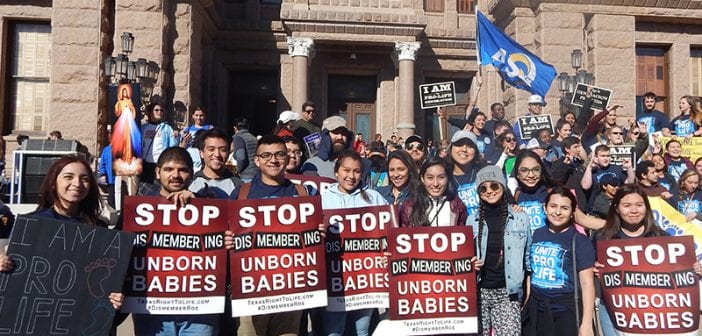The annual poll on public opinion about abortion by the Gallup News Service found that a majority of Americans desires abortion to be illegal in all or most circumstances. Furthermore, the same poll found that a plurality of Americans identifies as Pro-Life. But as with every public opinion poll about abortion, these positive results are complicated and serve best as an indicator of trends in current opinion on abortion.
Gallup conducted the poll in early May—as they have done for each of the last five years—before releasing the results last week. Overall, 21% of Americans believe abortion should be illegal in all circumstances; 39% believe abortion should remain legal in only a few circumstances; 13% believe abortion should remain legal in most circumstances, and 25% believe abortion should be legal in any circumstance. In the Gallup polls, this marks the highest percentage of Americans generally in favor of abortion restrictions since 2011 and the lowest percentage of Americans in favor of abortion on demand since 2010. Of those surveyed, 49% identify as Pro-Life compared to 46% who identify as pro-choice. To place these figures in context, the proportion of Americans who self-identify as Pro-Life in Gallup polls has only been larger twice since 1995: in 2012 (50%) and 2009 (51%).
These numbers, though, pale in comparison to the plurality of Texans (48% to 42%) in a recent poll who want to prohibit abortions after six weeks. Despite the overwhelming number of Texans who wish to see abortions reduced, the Texas Legislature failed to pass a single bill that stops abortions. Now, the rest of the country is signaling support for stronger Pro-Life laws.
The increased national opposition to abortion comes at a time when the political left is making a radical shift in favor of unconditional abortion. Several states with pro-abortion legislative majorities, including New York, Rhode Island, Vermont, and Illinois, have recently eliminated all protections for preborn (and newborn) children no matter how common sense or widely supported.
This year’s Gallup poll also included some difficult-to-interpret results. In America, a majority wants abortion to be restricted and a plurality identifies as Pro-Life, however 60% do not want the Supreme Court to overturn Roe v. Wade. These two beliefs—the desire to restrict abortion and a favorable attitude toward Roe—are fundamentally incompatible. Roe, as written, forbids states from enacting almost any abortion restriction or regulation. Only through a subsequent case, Planned Parenthood v. Casey, can states enact Pro-Life laws. Casey partially reaffirmed and partially limited Roe. The legislative landscape in which states craft abortion-restricting laws exists only because the Supreme Court limited their original ruling in Roe. In essence, the Gallup poll indicates some Americans want to restrict abortion but support a judicial decision that prohibits them from doing so.
The only explanation for this result (and the results of every other poll on abortion) is a fundamental public misunderstanding about Roe, abortion laws, and the issue generally. Many Americans have been deceived on the basic facts and legal implications of Roe, prompting them to give answers that don’t quite add up. This allows mainstream news outlets to portray a sentiment in favor of abortion (see here, here, and here) while they themselves are the ones propagating the misinformation (see here, here, and here). The muddled atmosphere surrounding abortion only enables the continuation of the status quo: abortion remains legal in some capacity in every state.
None of this is to say polling on abortion is worthless. These polls indicate trends in public opinion, and the most recent Gallup poll is encouraging in that regard. More Americans want abortion to be illegal in all or most circumstances (60%, up from 53%), identify as Pro-Life (49%, up from 48%), and personally find abortion morally wrong (50%, up from 48%). The Gallup Poll is good news, and Texas, a state with the capacity to lead in the legal and cultural fronts over abortion, should capitalize on the promising national and state numbers.


